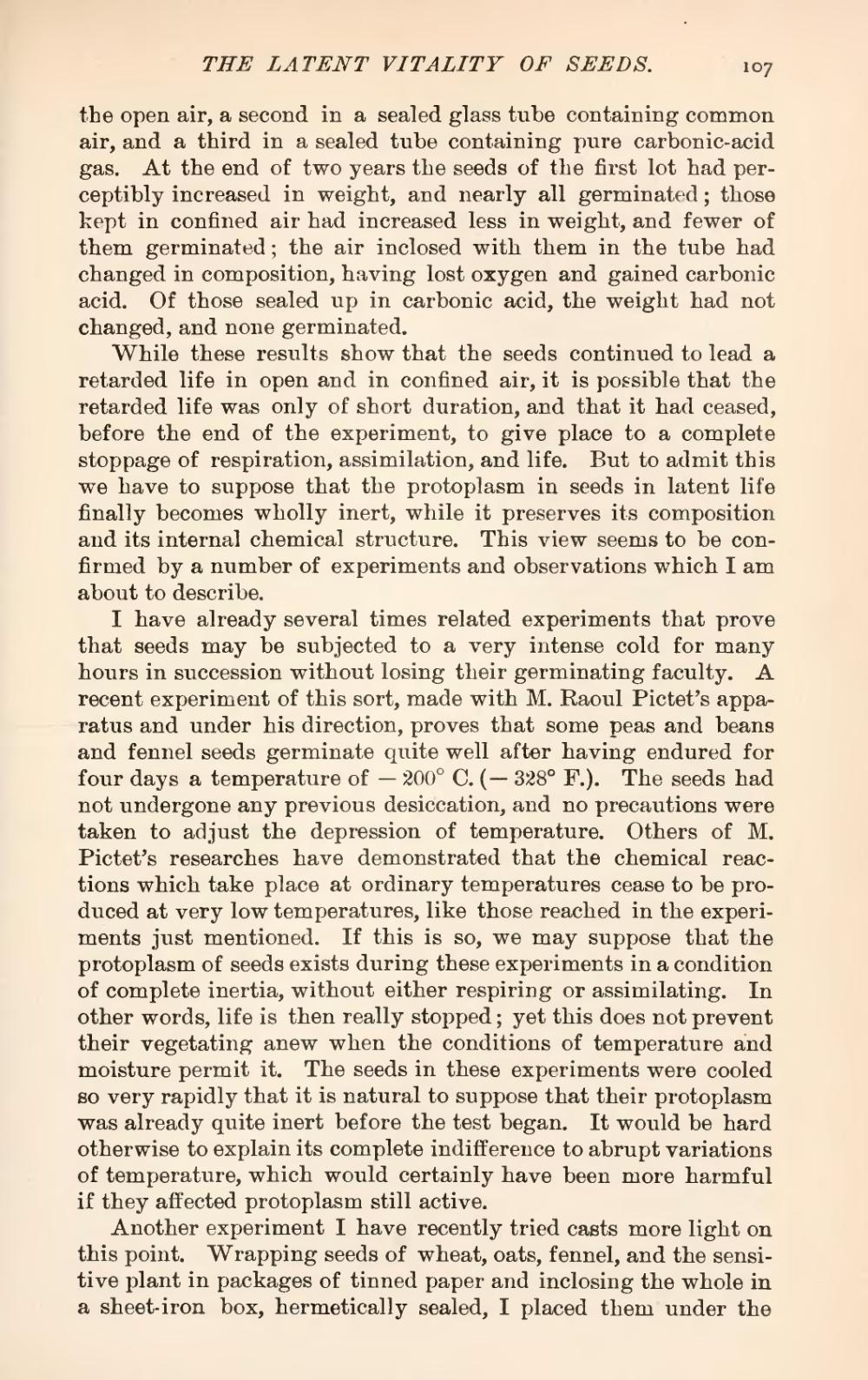the open air, a second in a sealed glass tube containing common air, and a third in a sealed tube containing pure carbonic-acid gas. At the end of two years the seeds of the first lot had perceptibly increased in weight, and nearly all germinated; those kept in confined air had increased less in weight, and fewer of them germinated; the air inclosed with them in the tube had changed in composition, having lost oxygen and gained carbonic acid. Of those sealed up in carbonic acid, the weight had not changed, and none germinated.
While these results show that the seeds continued to lead a retarded life in open and in confined air, it is possible that the retarded life was only of short duration, and that it had ceased, before the end of the experiment, to give place to a complete stoppage of respiration, assimilation, and life. But to admit this we have to suppose that the protoplasm in seeds in latent life finally becomes wholly inert, while it preserves its composition and its internal chemical structure. This view seems to be confirmed by a number of experiments and observations which I am about to describe.
I have already several times related experiments that prove that seeds may be subjected to a very intense cold for many hours in succession without losing their germinating faculty. A recent experiment of this sort, made with M. Raoul Pictet's apparatus and under his direction, proves that some peas and beans and fennel seeds germinate quite well after having endured for four days a temperature of −200° C. (−328° F.). The seeds had not undergone any previous desiccation, and no precautions were taken to adjust the depression of temperature. Others of M. Pictet's researches have demonstrated that the chemical reactions which take place at ordinary temperatures cease to be produced at very low temperatures, like those reached in the experiments just mentioned. If this is so, we may suppose that the protoplasm of seeds exists during these experiments in a condition of complete inertia, without either respiring or assimilating. In other words, life is then really stopped; yet this does not prevent their vegetating anew when the conditions of temperature and moisture permit it. The seeds in these experiments were cooled so very rapidly that it is natural to suppose that their protoplasm was already quite inert before the test began. It would be hard otherwise to explain its complete indifference to abrupt variations of temperature, which would certainly have been more harmful if they affected protoplasm still active.
Another experiment I have recently tried casts more light on this point. Wrapping seeds of wheat, oats, fennel, and the sensitive plant in packages of tinned paper and inclosing the whole in a sheet-iron box, hermetically sealed, I placed them under the

